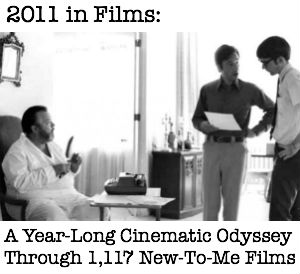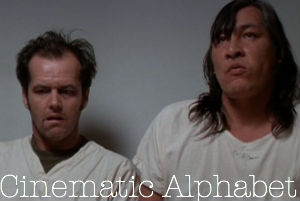Female Filmmaker Friday: Infinitely Polar Bear, 2015 (dir. Maya Forbes)
When I first heard about this film I was a bit hesitant to watch it, but it was released during A Year With Women and I felt it would be wrong to skip it. The reason for my hesitation was that it is a story about a man with bipolar disorder, and although it is based on the real-life childhood of writer/director Maya Forbes, I was afraid of how the character would be depicted. The last major film to feature a character with bipolar disorder was David O. Russell’s Silver Linings Playbook, and while I thought that Bradley Cooper did an excellent job portraying the disorder I felt like the tone of the film betrayed him. The worst theatrical experience I have ever had was watching that movie and seeing him do such a great job and being surrounded by people laughing at him. I didn’t feel like they were laughing with him. They were laughing at him. Which made me feel as if they were laughing at me as well. Seeing what Cooper did in that film was like watching myself. I have had bipolar disorder half of my life. I felt that Russell’s direction of the film betrayed the great work Cooper did and I was afraid that it would happen again. Thankfully, this was not the case. Not only did Mark Ruffalo do a great job in his portrayal of the disorder, but I felt like Forbes brought much more empathy to the character and in the tone of her film, while imbuing it with equal amounts of humor and pathos.

On her father’s side Maya Forbes is descended from the Boston Brahmin elite Forbes family, and counts John Forbes Kerry (yes that John Kerry) as a relative. This is not the same Forbes family as Forbes Magazine. In real life, Forbes’s father looked after Maya and her sister China (who later became the lead singer of Pink Martini) in Boston while living with bipolar disorder as their mother attended Columbia Business School to get her M.B.A. After she graduated, her mother worked on Wall Street and later became the first African-American woman to start a growth equity management firm in the United States. This served as the inspiration for the autobiographical nature of this film.

Mark Ruffalo is very charming as the fictionalized version of Forbes’s father, here called Cameron Stuart. As the film begins he is in the middle of a nervous breakdown. We see how violent one came become during a manic episode. We also see how the deep the depression can go. What I particularly liked about his performance is how little aspects of the disorder just sort of sneak up on you. There are times when Cameron’s mind is running so fast that he literally cannot stop talking. I know this feelings well and I felt the way Ruffalo brought this aspect of the disorder to life was incredibly well done. What I also really liked about this film was that Forbes did not just focus on her father’s bipolar, but also in the fact that as a father in the 1970s he really didn’t know how to do much hands on parenting.

There’s a scene where he tries to help his daughter brush her hair that is quite relatable. He’s bad at it because a) he’s clearly never dealt with long hair, but also b) their mother is black and so the texture of their hair is completely something he is not used to.

I also quite like this bit with the dirty dishes. This part is great because it shows how important housework is and how often it goes unnoticed by those who don’t practice it. As a person who lets her dishes pile up unreasonably high, I feel this mess.

Cameron does the best he can to take care of his girls Amelia (Imogene Wolodarsky, who is Maya Forbes’s daughter) and Faith (Ashley Aufderheide), but it is made clear that he even without factoring in his bipolar disorder, he’s not the most responsible person. A lot of the parenting tasks fall on Amelia, the older of the two girls. The film does a great job of showing him falling in love with parenting and really growing to respect his daughters and the strong individuals that they are becoming.

Imogene Wolodarsky was 12 years old during the production and had not performed in anything before (and hasn’t done another film since). Forbes knew her daughter had the right emotional range for the film and felt she had excellent chemistry with both Ruffalo and Zoe Saldana. She also had great chemistry with the actress playing her little sister. The two seem to really have that special bond that only siblings ever truly know.

This is one of my favorite Zoe Saldana performances. She’s a woman in a very difficult place. She knows what she needs to do to make life better for her children, but in order to do what is necessary she has to leave them. It’s a delight to see the complicated relationship with the father of her children play out on her face as she makes this decision, fights for this decision, and every time she visits her family.

Saldana and Ruffalo also have great chemistry. In the scenes were they are together without the children, the heat is palpable. However, she knows that despite what they feel for each other that they’ve outgrown each other. This push-pull of heart vs. brain add delicious tension to all of their scenes.

There’s also a playfulness to their scenes that I love. I almost wish we could get a prequel to this film that was just about how her parents met.

I would be remiss if I did not mention that Mark Ruffalo’s character’s dad is played by Keir Dullea. All these scenes with the rich Bostonians are great because it shows just how clueless this class of people can be about basic human problems.

I wanted to end this with one last shot of Imogene Wolodarsky. I just love how much like a regular pre-teen girl she looks throughout the movie. Often in films middle school age kids don’t look anything like real middle school age kids. Much like in last year’s Eight Grade, this film allows its children to looks like real, awkward, children. I wonder if looking back at this film in ten years Wolodarsky will feel the way I feel looking back at pictures of middle school me: somewhere between relief and nostalgia.
Posted on February 1, 2019, in Female Filmmaker Friday and tagged Ashley Aufderheide, Female Filmmaker Friday, Imogene Wolodarsky, Infinitely Polar Bear, Keir Dullea, Mark Ruffalo, Maya Forbes, Zoe Saldana. Bookmark the permalink. 1 Comment.

















Pingback: Female Filmmaker Friday: Fits and Starts, 2017 (dir. Laura Terruso) | the diary of a film history fanatic